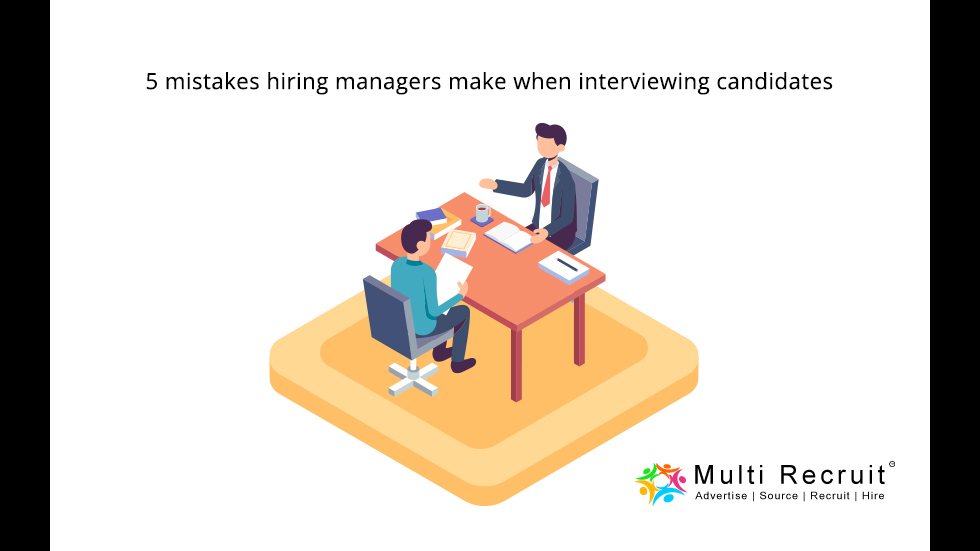5 mistakes hiring managers make when interviewing candidates Jeff Bezos once said, “I’d rather interview 50 people and not hire anyone than hire the wrong person.”
Hiring is a crucial business process, and it’s no wonder that recruitment remains a perennial struggle for so many employers! Hiring managers often make things more difficult than necessary with unforced errors in their processes or decisions.
Here are 5 of the most common mistakes made by hiring managers.
Not clearly defining the job requirements: One of the biggest mistakes hiring managers make is not having a clear understanding of the job requirements and
duties. This can lead to interviewing candidates who may not be a good fit for the position, and ultimately result in a bad hire. To avoid this, it’s important to
have a detailed job description and to communicate the requirements to the interviewer before the interview process begins.
Focusing too much on qualifications: Another mistake hiring managers make is placing too much emphasis on a candidate’s qualifications and not enough on
their skills and experience. While qualifications are important, they are not the only factor that should be considered. Instead, hiring managers should focus on a
candidate’s skills, experience and how they would fit into the company’s culture.
Not asking the right questions: A common mistake hiring managers make is not asking the right questions during an interview. This can make it difficult to get a
clear understanding of a candidate’s qualifications and experience. To avoid this, it’s important to prepare a list of questions that will help to evaluate a candidate’s qualifications and experience.
Not taking the time to check references: Many hiring managers make the mistake of not taking the time to check references before making a hiring decision. This can lead to bad hires, as a candidate may not have provided a truthful representation of their qualifications and experience. To avoid this, it’s important to take the time to check references and to verify a candidate’s qualifications and experience.
Not considering diversity: Hiring managers often make the mistake of not considering diversity when interviewing candidates. This can lead to a lack of diversity within the company and can also result in bad hires. To avoid this, it’s important to consider diversity when interviewing candidates and to actively seek out candidates from diverse backgrounds.
In conclusion, hiring managers should be clear on the job requirements, focus on skills and experience, ask the right questions, check references, and consider diversity when interviewing candidates to avoid making mistakes that can lead to bad hires. This will help to create a more diverse and qualified workforce that will ultimately benefit the company.

